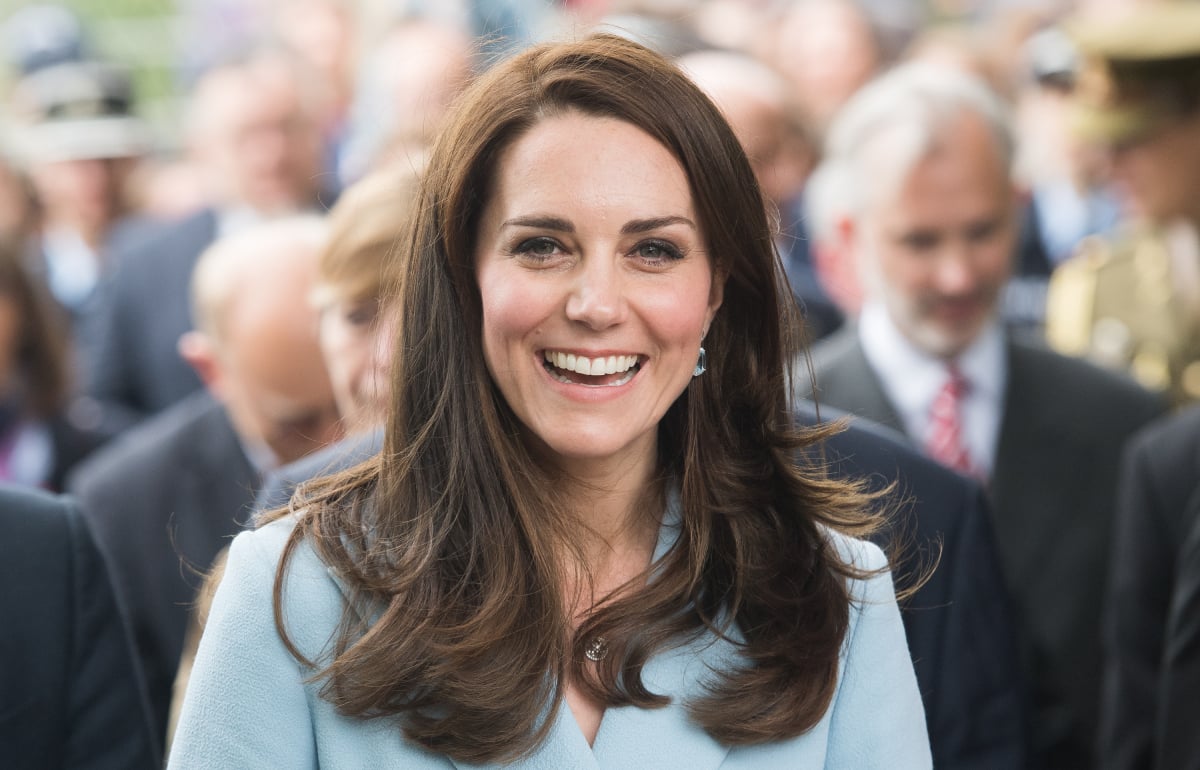Kate Middleton Will Recieve More Titles Than Just the Princess of Wales When Charles Becomes King
ARTICLE HIGHLIGHTS
- Kate Middleton became the Duchess of Cambridge when she married Prince William.
- When Prince Charles becomes king, Kate will recieve numerous new titles.
- Including one that has not been used by anyone since Princess Diana.

Kate Middleton’s most commonly used title at the moment is Duchess of Cambridge. But when Prince Charles becomes king — and Prince William becomes heir to the throne — her title will change. When the time comes, Middleton will receive numerous new royal titles — including one that hasn’t been used since the death of Princess Diana.
Kate Middleton became the Duchess of Cambridge on her wedding day
Per royal tradition, Queen Elizabeth made William the Duke of Cambridge and Kate the Duchess of Cambridge on their wedding day in April 2011. Kate also received the HRH title — Her Royal Highness — which will remain with her as William ascends to the throne.
The other titles she receives in the future will be connected to her husband or granted by the Sovereign. When Prince Charles becomes king, Kate will likely drop the Duchess of Cambridge title and receive new ones.
Dr. Bob Morris — Senior Honorary Research Associate at the Constitution Unit, University College London — told Express that at least three new royal titles could be in Kate’s future.
Prince William will be the heir apparent
A lot of things will change in the royal family when Queen Elizabeth passes and Charles becomes king. William will become the heir apparent to the throne — a place that Charles has held for 70 years and counting — and he will inherit the Duchy of Cornwall.
This will automatically make William the Duke of Cornwall. And as his wife, Kate will hold the title of Duchess of Cornwall. As royal fans know, this is currently the title being used by Charles’ wife, Camilla.
Kate Middleton might also be known as the Princess of Wales
One major title that royal fans are very familiar with is Princess of Wales, which was last used by the late Princess Diana. Unlike the Duke of Cornwall, the Prince of Wales title isn’t automatic for the heir apparent. It must be allocated by the Sovereign. Meaning the Princess of Wales title is not a guarantee for Kate.
“When Prince Charles becomes king, his eldest son does not automatically inherit his father’s title as the Prince of Wales. However, it is likely that any delay will be short before the title is conferred,” Dr. Morris explained.
“Accordingly, when her husband becomes Prince of Wales, she [Kate] will become Princess of Wales as well as sharing the heir’s other title of the Duke of Cornwall.”
More titles from Scotland and Northern Ireland
Dr. Morris also noted that William will receive new titles that he will use in Scotland and Northern Ireland — the Duke of Rothesay and Earl of Carrick. William’s new titles will automatically make Kate the Duchess of Rothesay in Scotland and the Countess of Carrick.
The royal expert also noted that for 2022, Queen Elizabeth made Camilla a Royal Lady of the Most Noble Order of the Garter. This means the same thing could happen to Kate under the next Sovereign.
Kate Middleton could receive the UK’s most prestigious order of chivalry
Dr. Morris explained that Kate is “already a senior member of the Royal Victorian Order.” Which is a gift from the Sovereign like the Order of the Garter. He says it’s likely that Kate will receive this honor — which is the UK’s most prestigious order of chivalry — when either Charles or William is king.
“Finally, granted the precedent of the Duchess of Cornwall’s appointment as the first spouse of the heir to be appointed to the Garter, it seems likely that the Duchess of Cambridge can also expect to be similarly appointed in due course after her father-in-law’s succession,” Dr. Morris concluded.



